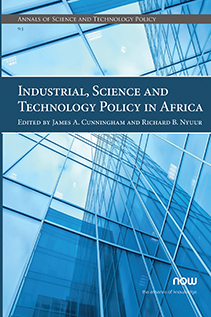Industrial, Science and Technology Policy in Ghana
By Richard B. Nyuur, School of Management, University of Bradford, UK, r.b.nyuur@bradford.ac.uk | Aziz Christian Jabaru, University of Ghana Business School, Ghana, azizcj7@gmail.com | Ellis L. C. Osabutey, Newcastle Business School, Northumbria University, UK, ellis.osabutey@northumbria.ac.uk
Abstract
The study sheds light on Ghana’s industrial science and technology strategies. It starts by revealing the evolution of Ghana’s industrial, scientific, and technological policies after independence. A description is given of several of these crucial policies, the institutions established in several sectors of the economy, and the role they have played in enhancing Ghana’s development. The study further explains how some of the industrial, scientific and technology policies have been revitalized in contemporary times. The industrial, science and technology performance in the Ghanaian economy is analysed and various solutions are suggested on how the Government of Ghana can revamp these policies and make them a key driver in accelerating Ghana’s development in the 21st century.
Industrial, Science and Technology Policy in Africa
There has been significant research attention and focus on industrial science and technology policies in developed economies that have been at the forefront of implementing various policy initiatives designed to stimulate firm level R&D, enhance university industry collaborations, and support entrepreneurs and start-ups. However, there has not been the same consistent research attention on science and technology policy in less developed countries where there are distinct economic, social, cultural and institutional differences. Industrial, Science and Technology Policy in Africa considers some of the contextual issues for science and technology policy development in Africa and proposes future avenues for research.

Companion
Annals of Science and Technology Policy, Volume 9, Issue 1 Special Issue: Industrial, Science and Technology Policy in Africa
See the other articles that are also part of this special issue.